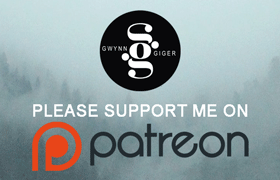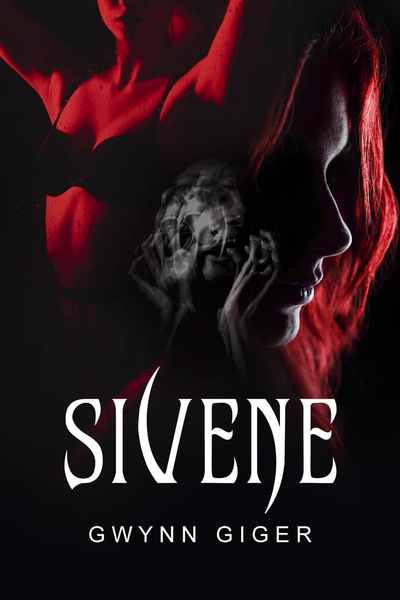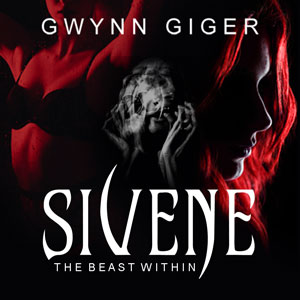Dear Reader,
Before starting this story, please note that something strange happened to my account recently. Chapters were rearranged in a different order, names, and places were changed, and some parts of the story simply disappeared. There's a part of me that thinks this has to do with someone who knows the real story this book is based on and wants to confuse my readers. I've changed passwords now, so hopefully that will take care of the problem.
After a lot of work, I think I've reconstructed the original story but I may have missed some things. If you come to a passage that doesn't seem to make sense or if you find anything else particularly weird (like a character is called by another name), please let me know and I will do my best to fix it. Thank you for your patience and I hope you enjoy the story.
...and so it begins.
-G.G.
Listless in Boston
Back when I was studying journalism in college, one of my favorite professors was fond of a saying he told us was common among reporters and spies. “If it feels wrong, it is wrong.” It’s a deceptively simple maxim, but it was ultimately the best advice I ever received, not just for my career, but for life. Unfortunately, he never warned us against assuming that the opposite was also true. Just because something feels good, doesn’t mean it is good. If there’s one thing I learned in Cold Hollow, the thing that feels good is more than likely the thing that will get you killed.
My name is Kelly Kane. In 1996, I moved to a remote part of northern Vermont to investigate a series of missing person cases. I was young, fresh out of school, and naively confident in myself. I thought I could whisk into town, solve a decades-long mystery, and come out unscathed. Whatever innocence was still left in me when I moved to Vermont, my experiences in Cold Hollow sucked it out. By the time I left in 1998, I told myself I would never write again. It wasn’t until a chance encounter with a hungry young documentary film-maker that convinced me to return from a twenty year hiatus to tell this story I’m about to share with you. You don’t have to believe it, but I feel I have to tell it.
Cold Hollow isn’t known for many things. In fact, it isn’t known very well at all beyond Vermont and the southern Canadian border. Within its bounds are several mostly depressed farming communities: Fletcher, Waterville, Belvedere, Bakersfield, Enosburg, Montgomery, and Richford. It’s a slow and icy region of the northeastern United States, darkened by dense woodlands pock-marked with fields clear-cut by dairy farmers who cause the entire county to reek of manure for most of the year. Driving through, winter tourists might make the mistake of focusing on the beauty of the gently sloping Cold Hollow Mountain range in the distance, or the winding Mississquoi River and the quaint covered bridges straddling the creeks and streams that branch from it. But few venture too far onto the other side of those bridges. If they did, they would quickly find towns wrecked by poverty, drug-abuse, and all the vice and violence that goes with it. Imagine if Norman Rockwell painted scenes from Night of the Living Dead. That’s the picture of life in Cold Hollow as I remember it.
I was born and raised in Boston in the 1970s and though Beantown has its fair share of wintry weather, nothing prepared me for the cold of northern Vermont. When I was young, I was always dreaming of summer. It was my favorite time of year, with cherry Kool-aid in my grandmother’s den and trips to the public pool in my father’s sky blue Chevy LTD. I’m still quite partial to the summer although my preferred beverages, while still fruity, have matured. Looking back, thinking about living in the frigid rural wasteland of Cold Hollow now seems almost incomprehensible. I suppose my time there is a testament to how badly I wanted some excitement in my life.
Writing was my first love and, like most first loves, it ended in heartbreak. I cycled through many difficult emotions after my time in Cold Hollow. But before all of that, I passionately believed that I wanted nothing more than to be a journalist. I wanted to tell stories. Not fictional ones, but stories about real people and their struggles and triumphs. What I discovered, however, wasn’t a story about people at all. It was a story about monsters.
College was a carefree time in my life. I was studious and naturally curious, something of a workaholic, and eager to dive deep into the world and what it had to offer. I was especially interested in politics. Not national politics, international trade deals, wars, and things like that. Growing up during the height of the Cold War, I was tired of all the hyperbole and jingoistic rhetoric. I wanted to get into the trenches of local politics, where the effects of policy are most visible. At the time I thought I could make a real difference. I was focused on gerrymandering and redlining in Boston’s minority and low-income communities. I wanted to amplify the voices of those who felt they had been discriminated against by things like blanket mortgage and loan denials. I don’t know where exactly this passion came from. Perhaps it was a reaction to seeing injustices around me and feeling helpless to do anything about them. That’s what I would have said back then, but now, I’m not so certain. Maybe I just didn’t have anything in my own life that seemed interesting enough to write about.
That was before my first trip to Cold Hollow, before learning about the disappearances, the murders, and the lies that concealed them.
Like a lot of journalism students, I was bright-eyed and bushy-tailed at the idea of breaking huge meaningful stories to the public. I wasn’t interested in fame, but I wanted my voice to be heard. I was genuinely excited to engage with the world around me and contribute to change for the better. It’s a vague notion that many young people experience, but nevertheless, it was an authentic and passionate desire. Naturally, reality struck me hard as soon as graduation hit.
It was 1992 when I left Northeastern with a degree in journalism (to the chagrin of my parents who desperately wished I would go on to law school). I had about thirteen dollars in my checking account, a girlfriend whom I loved and adored, and I was ready to take on the world. Unfortunately, the world seemed to want little to do with me.
My job prospects seemed endless before I left school, but as each month went by those solid connections I thought I had cultivated at the Boston Globe and the local radio station WBUR became flimsier. My calls went unanswered. Letters and drop-in visits went unacknowledged. I was stuck. I applied for job after job, even lowering myself to clerk positions in television station mailrooms. It was discouraging to be met with silence when, just a few months earlier, I had been assured by my professors and advisors that I would have no issue finding a job. It felt as if I had been suddenly met with an invisible brick wall that kept me from moving forward.
Fortunately, I was living with my partner at the time. Her name was Elle Wasserstein and, upon graduation, she had moved into a good job as a second-grade teacher just weeks before we finished school. I would be lying if I said I wasn’t jealous of her. But romantic relationships can be made complicated by feelings of jealousy over jobs and success, as I quickly found. Elle was incredibly gracious and supportive, and even assisted me monetarily from time to time, as did her parents occasionally. I, on the other hand, was resentful. In the end, I took a hostess position at an Italian restaurant down the street from our apartment, but as you can imagine it paid little.
I regret the contempt with which I met Elle’s kindness. Perhaps it’s the Irish pride in me that makes it so difficult to accept help. I think about the many times I snubbed her or snapped at her out of frustration, even as she reassured me that I would eventually find a job I actually wanted to work. I still regret the way I treated her at times, but in the darkest of those moments, I felt powerless, hopeless.
First Foray into Cold Hollow
In the winter of 1995, Elle and I were gifted a vacation to a ski resort in Vermont by her parents. They were wealthy blue-blood Bostonians. Kind people and surprisingly supportive of their daughter’s same-sex relationships, but difficult for me to relate to most of the time. They were the kind of middle-class people that didn’t realize just how much they had compared to the working-class folks around them. Having a gardener and a live-in nanny for Elle and her brother never seemed to have struck them as unusual.
The family’s wealth was the result of a paper mill her grandfather and owned and operated on the waterfront. For much of the 1940s, the mill was one of many popping up around Massachusetts and Elle’s grandfather had got in on the ground floor, experimenting with wood pulp and other specialty papers. When he improved the process through the addition of sulfite, his firm grew to be one of the largest and most successful in the northeastern United States. But paper milling in Boston quickly declined after World War II thanks to competition from Canada and other nearby states with larger forests. Old man Wasserstein was shrewd, however, and stayed afloat by selling their processes and production methods to China and Japan. My family, on the other hand, worked as truck drivers, bar tenders, housekeepers, and other blue-collar jobs, in spite of their relatively high level of education. In hindsight, I realize that I grew up in a bitter household, and that much of that bitterness had seeped into me, making it hard to see the Wasserstein’s success as anything but a constant reminder of my own family’s struggles. At times, their generosity seemed smug and mocking when, in reality, they were just products of their environment as I was of mine.
I resisted accepting the vacation Elle’s parents had gifted us at first, but Elle had a way of sweet-talking me into things I wouldn’t have normally done. I can be stubborn at times, but even I am not impervious to the effects of a low voice and curves shrouded in black lace. We drove from Boston up through Vermont to Jay Peak for the weekend in mid-December 1995. After four hours on the highway and a slow winding drive up the mountain, we met her parents, Martin and Daphne, at the resort and settled in for the weekend. I was feeling a little on edge, not only because I felt like something of a charity case at the time, but also because I wasn’t much of a skier.
“Are you sure you don’t want to do a day of ski school? You could probably ride the bunny hill by the end of the day.” Elle looked like a pink marshmallow in her puffy jacket and thick wool hat.
“It’s no problem, babe. You know I’ll be far happier reading at the lodge than learning the ropes with a bunch of little kids.”
“Mmm, alright. If you say so. Have some hot chocolate for me.” She kissed me, put on her gloves, and I was alone.
I wandered around the lodge and settled down at a table in the bar by a roaring fire. I was honestly more than happy to sit out skiing so that Elle and her parents could spend time together. I enjoyed being with them, but the fewer opportunities they had to ask me about my job prospects the better.
For the next two hours, I read a Joan Didion book and sipped on endless cups of black coffee (I’m a sucker for a good book in a pleasant atmosphere), when sometime in the mid-afternoon, two men came into the bar and sat down at a table nearby. They chatted casually and drank hot toddies as one flipped through a local newspaper and commented on the headline.
“A missing girl,” the older of the two men said. “Says here she’s one of many.” He was a bit of a mumbler, but I could make out most of what he said from my table.
“That makes, what? Six now, I think, and just this year alone,” the older man said to the younger man, but the younger man seemed disinterested as he sipped his drink and gazed out the window over the slopes.
“Shame, that,” he said, trying unsuccessfully to goad the younger man into conversation. “Reminds a fella to keep his daughters close.”
The two men left after finishing their drinks, but left their newspaper behind on the table. Their conversation had my curiosity piqued. It seemed strange that the close-knit sleepy communities of Cold Hollow would have more than one active missing person case. And the fact that all those that had disappeared were women caused me to think that these weren’t just accidents or coincidences. There must be a kidnapper at work, or a serial killer, I thought.
I grabbed the newspaper from their table, downed the last of my coffee, and headed back to our room. On the way, I stopped at the front desk to collect any other local newspapers that might be available. I also asked the desk clerk what he knew about the story, but all he did was shrug his shoulders and stutter before saying, “I wish I could help you.”
By the time Elle got back to our room from the slopes a few hours later, I had three different newspapers spread out on our bed and had questioned two of the housekeepers and a janitor about the cases. I was met with the same reluctance to talk as I had encountered at the front desk, but I had learned that it wasn’t all that uncommon for people – locals mostly – to simply vanish from Cold Hollow without a trace, but no one seemed to have an answer as to why. One of the housekeepers I spoke to speculated it might have to do with the number of truckers crossing back and forth between the Canadian border, while the janitor was certain that the missing people had simply died on the mountains. But that didn’t explain why all those who had disappeared were women or why their bodies were never found.
Elle wasn’t very interested in hearing about my grisly theories and was probably more than a little worried about my state of mind, but she listened patiently, as she always had when I got excited. As I spoke, she nodded and replied with the occasional “uh, huh” or “oh, I see.” At the same time, she removed her ski clothes and prepared herself for a shower.
“Well, I’m going to hop in the shower now,” she said standing naked beside the bed as stupid me pointed to a passage in the Saint Alban’s paper and speculated about kidnappers and serial killers. “Or maybe I’ll have a bath,” she purred, but her effort at seduction was lost on me...












Comments (2)
See all